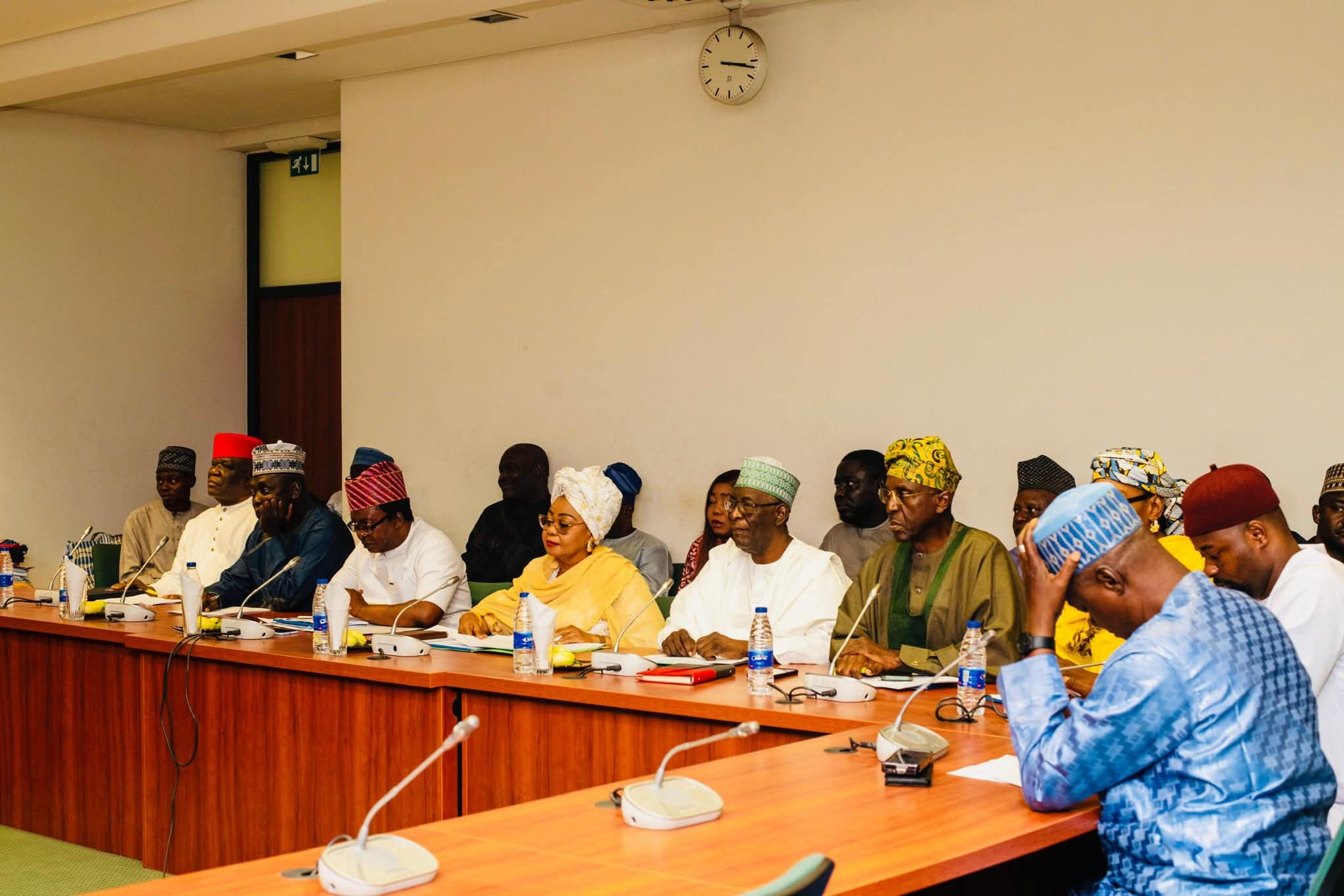society
EXPOSED! An Account of how Maryam Sanda killed her husband, Bilyamin Bello – Witness reveals

A witness has revealed in details how Maryam Sanda made several attempt attempts to stab her husband, Bilyamin Bello before eventually killing him the night she did. Recall that Sanda is standing trial for the alleged murder of Bello, who was her husband and son of former Peoples Democratic Party Chairman, Bello Haliru.
The witness, Ibrahim Mohammed, said he was with the deceased for over eight hours, the night before his death; and witnessed several attempts by the first defendant, Ms Sanda, to kill him.
According to Mohammed, a friend of Bilayamin, Sanda asked her husband for divorce and appeared bent on getting it that night. The witness said she threatened several times to chop off his sex organ if he declined to give her freedom from their marriage. Mohammed told the court that while he was watching television with the deceased at the couple’s residence that fateful day, he heard Sanda calling her husband from upstairs.
“He went to meet her, but soon returned to the sitting room,” said Mohammed. The witness further explained that the accused soon came herself to call her husband a second time in the sitting room.
“Soon after they returned upstairs, I heard noise coming from there. Maryam sent the fourth defendant to call me. When I got there I saw both of them holding each other to the throat.
“I enquired to know what was happening and asked them to stop fighting. The first defendant asked me to tell her husband to divorce her, but I asked her to take things calm. She said she was not going anywhere until he divorced her,” Mohammed told the court.
Mohammed said he tried disengaging Sanda’s hand from her husband’s neck. He added that shortly after separating the couple, the first defendant rushed to break a bottle of groundnut on the wall and tried stabbing her husband with it.
“She came straight at Bilyamin to stab him. I held her hands and Bilyamin went behind her and collected the broken bottle from her hands and went downstairs. I closed the door and continued to advise Maryam that they should stop fighting.
“She said she would not stop until Bilyamin divorced her that night; that either he divorced her or she would cut his private part.
“While pleading with her, Bilyamin entered the bedroom and Maryam followed him, insisting that he should divorce her that night but Bilyamin kept silent,” Mohammed said.
The witness narrated that the first defendant made another attempt to stab her husband after breaking another bottle of perfume, but her husband collected the bottle, pushed her to the bed and left the room.
“The first defendant then went to the kitchen and picked a knife with which she attempted again to stab the deceased,” said the witness who added that Bilyamin collected the knife from the defendant but that she made three other attempts to collect the knife.
“She attempted picking the knife for about three or four times,” he said.
At that point, the witness said he tried to make a number of calls. When one of those whom he called arrived the house, Mr Mohammed said he went with the deceased to treat the injury sustained from a bite inflicted upon him by Ms Sanda.
They later returned to the house and were subsequently joined by a third person who chatted briefly with them at the sitting room.
“When we returned, the first defendant was not at home. She later returned and started playing with the baby,” added Mr Mohammed.
To avoid being seen as coming in-between the couples, the visitors decide to leave, the witness narrated. While leaving, Mr. Mohammed said he narrated what happened before his arrival to his friend who wondered why they left the house, given the violence between the couple.
Mr. Mohammed said they made further attempts to call the deceased on phone, without success.
Mr. Mohammed added that he later received a call from Bilyamin’s brother that Bilyamin had been killed.
“I went to Maitama Hospital after that call and met Bilyaminu lying on a bed in front of the hospital. There was a hole in his chest near the heart, bite on his stomach. There was a cut on his thigh and there was a sign of stitching on him,” he said.
During cross-examination, Mr. Mohammed told the court that the deceased was not badly injured before he left the house. He also said although Ms Sanda threatened to cut off her husband’s sex organ, she never actually threatened to kill him.
The trial judge, Yusuf Halilu adjourned the matter to May 15.
society
SENATOR ADEOLA YAYI REGISTERS 4000 JAMB CANDIDATES

SENATOR ADEOLA YAYI REGISTERS 4000 JAMB CANDIDATES
In continuation of his educational support initiatives and following established tradition, Senator Solomon Adeola (APC,Ogun West) has successfully paid for and enrolled 4000 indigent students for the 2026 Joint Admission Matriculation Board(JAMB) examination.
According to a release e-signed and made available to members of the League of Yewa-Awori Media Practitioners (LOYAMP) by High Chief Kayode Odunaro, Media Adviser to Senator Adeola and shared with (your mediu), the programme financed by the senator under the “SEN YAYI FREE JAMB 2026” ended on Saturday , February 21, 2026, with a total of 4000 candidates successfully enrolled with their PINs provided.
Commenting on the success of the programme, Senator Adeola said the programme is another leg of his personal educational empowerment for indigent but brilliant citizens preparatory to his scholarship and bursary facilitation for tertiary education institutions’ students.
“As far as I can help it, none of our children will miss educational opportunities arising out of adverse economic predicament of their parents or guardians”, he stated.
Successful candidates cut across all the three senatorial districts of Ogun State with 2183 coming from Ogun West, 1358 coming from Ogun Central and 418 from Ogun East.
Some of the candidates that applied and are yet to get their PINs due wrong information supplied in their profiles and being underage as discovered by JAMB and other reasons are being further assisted to see the possibility of getting their PINs.
The Free JAMB programme of the Senator that has been running for years is well received by appreciative beneficiaries and their parents.
Alhaji Suara Adeyemi from Ipokia Local Government whose daughter successfully got her PIN in the programme said the Senator’s gesture was a welcome financial relief for his family at this period after payment of numerous school fees of other siblings of the beneficiary seeking admission to higher institution.
Also posting on the social media handle of the Senator, a beneficiary Mr. Henry Olaitan, from Odeda LGA said that he would have missed doing the entry examination as his guardian cannot afford the fees for himself and two of his children.
society
House Committee Seeks Stronger Financial Backing for Federal Character Commission

House Committee Seeks Stronger Financial Backing for Federal Character Commission
The Executive Chairman of the Federal Character Commission (FCC), Honorable Hulayat Motunrayo Omidiran, has reassured the commitment of her new leadership to reposition the Commission and strengthen enforcement of the federal character principle, despite prevailing funding challenges.
Hon. Omidiran made this known during the Commission’s budget defence before the House of Representatives Committee on Federal Character at the National Assembly on Friday, February 19, 2026.
The Executive Chairman opened up on inadequate funding has continued to constrain the Commission’s statutory activities, including nationwide monitoring, compliance audits and enforcement measures across Ministries, Departments and Agencies (MDAs).
“We are focused and determined to do the work that the Constitution and the President have entrusted us with,” Omidiran stated.
The FCC Boss, however, assured lawmakers that the Commission remains resolute in ensuring equity, fairness and balanced representation in line with its constitutional mandate.
“As a Commission, it is our responsibility to engage with relevant government parastatals and ministries to secure the necessary funding we require. We believe that with consultation and collaboration, it will be a successful venture for the Commission.”
Earlier, the Chairman of the House Committee on Federal Character, RT. Hon. Ahmed Idris Wase, expressed deep concern over what he described as near-zero budgetary allocation to the Commission, stressing that such financial inadequacies severely undermine its operational effectiveness.
The Plateau State lawmaker assured the Commission of the Committee’s firm legislative backing in advocating for improved funding and strengthening the Commission’s capacity to fully exercise its constitutional mandate.
“We cannot reasonably expect the Federal Character Commission to enforce compliance across Ministries, Departments, and Agencies while grappling with insufficient funding,” Hon. Wase remarked.
“If we are genuinely committed to fairness, equity, and national cohesion, then we must be deliberate in adequately funding the institution established to safeguard these principles.
“As a Committee, we shall work closely with the leadership of the Commission to ensure that its budgetary provisions reflect the magnitude of its mandate. The era of skeletal or token funding must give way to realistic and sustainable financial support,” he concluded.
The budget defence session concluded on a note of renewed collaboration between the House of Representatives and the Commission, reflecting a shared determination to strengthen institutional capacity, enhance accountability, and promote equitable representation within Nigeria’s public service.
SIGNED:
Ademola Lawrence
Spokesperson,
Federal Character Commission
February 20, 2026
society
APC Ethiope West Congress Turns Violent: Ibori’s Daughter Escapes Assassination Attempt; Scores Injured

*APC Ethiope West Congress Turns Violent: Ibori’s Daughter Escapes Assassination Attempt; Scores Injured
The APC Ethiope West Local Government Area Congress took a terrible turn today as scores were attacked by gun-wielding thugs allegedly hired by old PDP members that moved to APC. The congress was relocated from its original venue the Oghara Township Stadium to a new venue,Ovade, in the LGA seemingly to disenfranchise original APC members.
Violence erupted when the Member representing Ethiope Federal Constituency Rt Hon Erhiatake Ibori-Suenu daughter of the the former Governor of Delta H.E Chief James Onanefe Ibori arrived at the new venue in Ovade. Apart from clear threats to her life by thugs sponsored by the Governor of Delta State, Rt Sheriff Oborevwori and former Rep member Hon Ben Igbakpa. Her supporters were attacked with dangerous weapons, as she was denied entrance to the venue. There were several attempts on her life which were foiled by her security details. There had been intels that she would have been shot if she had stepped foots on the venue this is terrible at a time when there had been hopes of peace coming into the party with the recent meeting at Asaba , however this recent happening shows peace is still far away .
Hon Erhiatake Ibori-Suenu has appealed for calm among APC supporters and old members amidst the unprovoked attack. Several injured individuals are receiving treatment at undisclosed hospitals.
There are still reports of targeted attacks on on members of the Old APC , calls have been made to security operatives to avert such attempts.
-

 celebrity radar - gossips6 months ago
celebrity radar - gossips6 months agoWhy Babangida’s Hilltop Home Became Nigeria’s Political “Mecca”
-

 society6 months ago
society6 months agoPower is a Loan, Not a Possession: The Sacred Duty of Planting People
-

 society5 months ago
society5 months agoReligion: Africa’s Oldest Weapon of Enslavement and the Forgotten Truth
-

 news6 months ago
news6 months agoTHE APPOINTMENT OF WASIU AYINDE BY THE FEDERAL GOVERNMENT AS AN AMBASSADOR SOUNDS EMBARRASSING













You must be logged in to post a comment Login